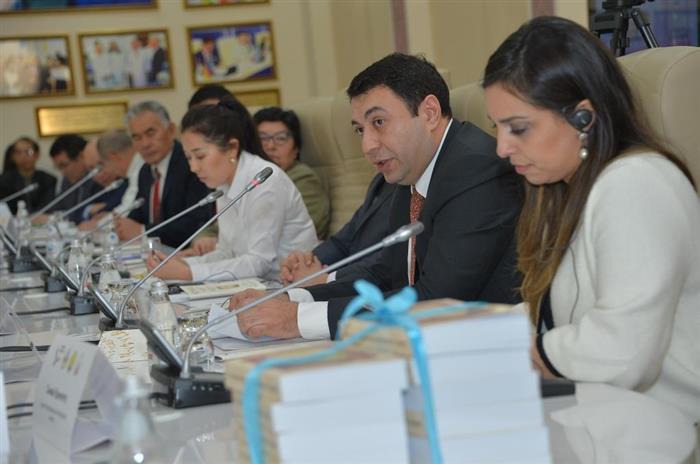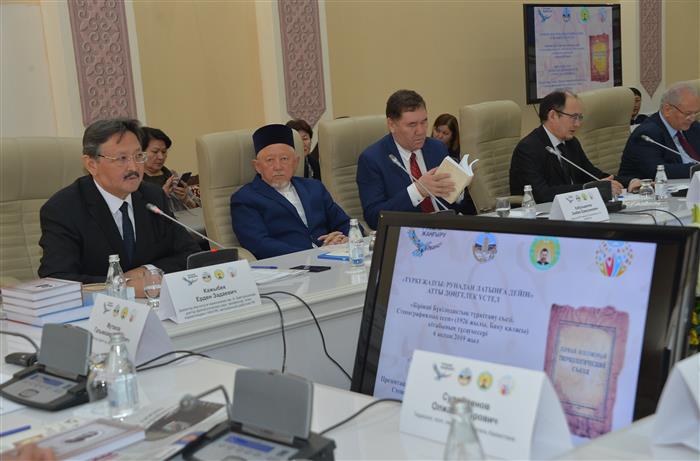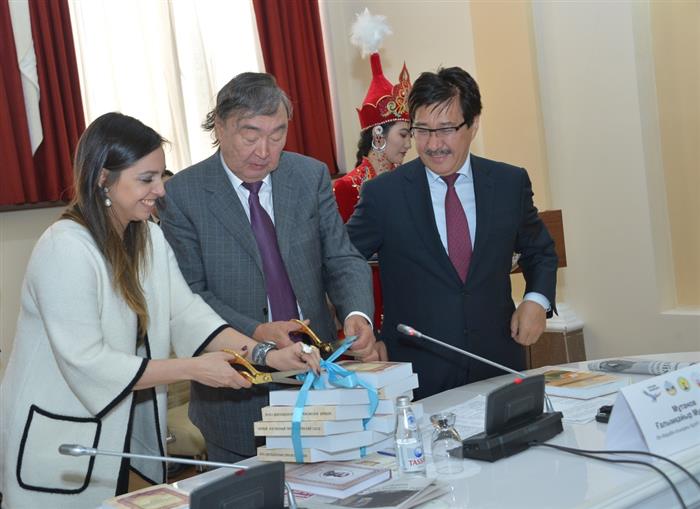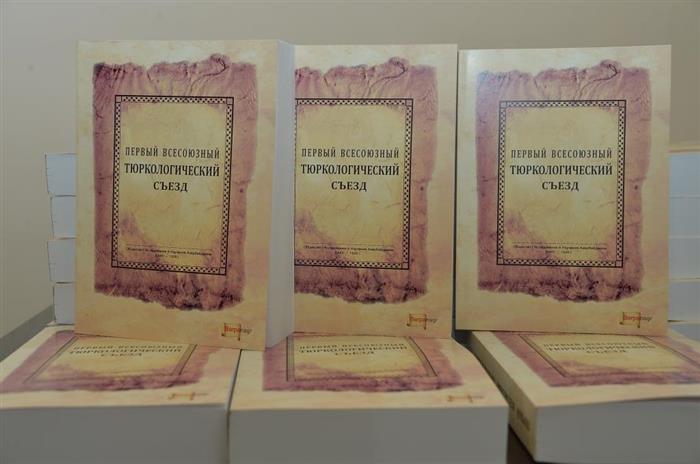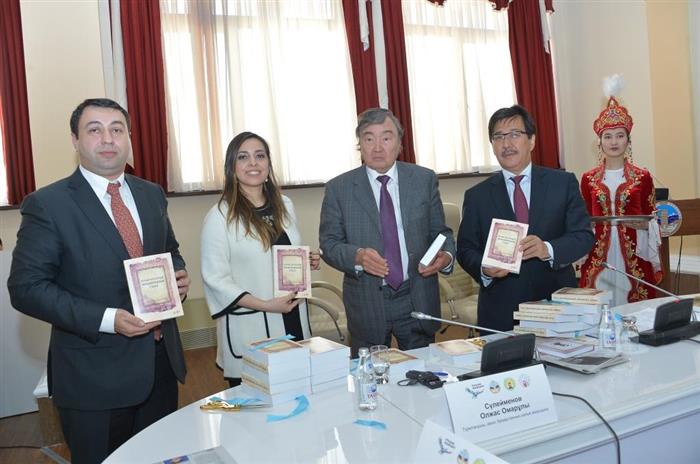Turkologists of All Countries Unite
Views: 4363
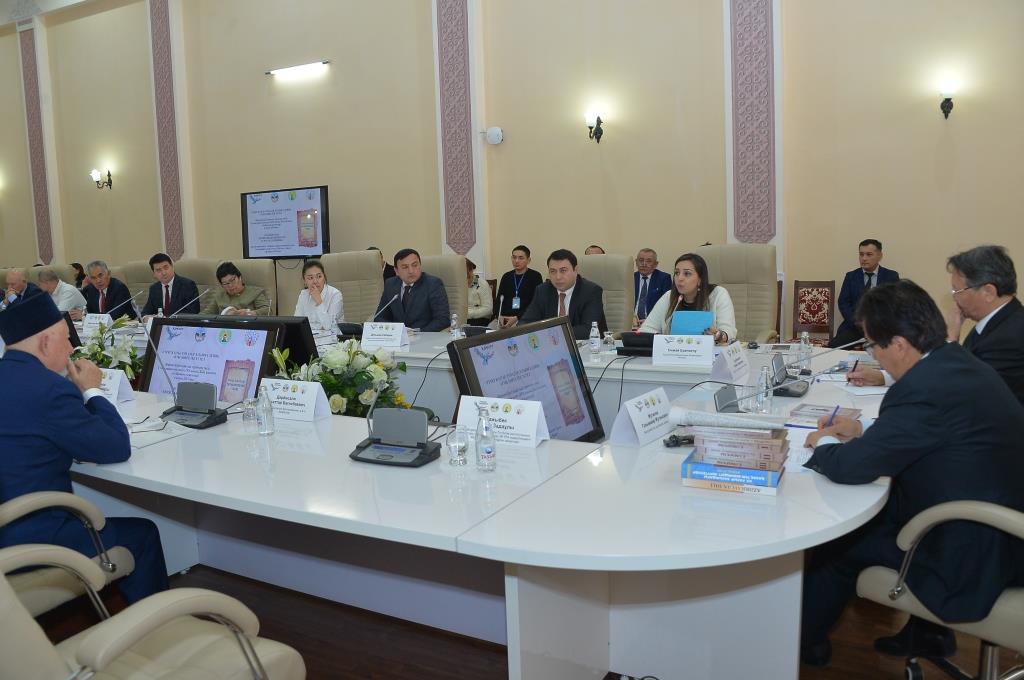
Al-Farabi KazNU hosted presentation of the book «The First All-Union Turkic Congress. Stenographic Report», published in 1926 in Baku. The agreement to re-publish a unique and rare book was reached during the visit of the delegation of KazNU headed by Rector Galym Mutanov to Azerbaijan in December 2018. The publication presents a collection of transcripts of speeches by one hundred and thirty participants of the historic Turkic Congress of 1926 in Baku, among which was the Kazakh delegation led by A. Baitursynov. At the Congress of Turkologists, the question of developing a unified conception of the writing of Turks around the world was discussed. This topic has its relevance today.
Welcoming all participants and guests, KazNU's Rector Galym Mutanov highlighted that the President of Kazakhstan proposed to convene the World Congress of Turkology in Astana within the framework of the project «Turkic Civilization: From the Beginnings to the Present», and this seems to be a logical continuity - the Baku Congress is not accidentally called First, its participants had sincerely hoped that this was the beginning of a great teamwork».
The presentation of a unique and rare book was held during the Round Table «Turkic Writing: From Runes to Latin», which was held by Al-Farabi KazNU, together with the A. Baitursynov Center for the Rapprochement of Cultures and the Institute of Linguistics. The event was attended by the people's writer and poet, a famous public figure Olzhas Suleimenov, Director of the Baitursynov Institute of Linguistics, Corresponding Member of the National Academy of Sciences of Kazakhstan Yerden Kazhybek, and famous foreign and domestic scientists and public figures, diplomats, doctoral students and undergraduates
During the event, scientists and diplomats have discussed the topical issues, such as the preservation of the Turkic cultural heritage of the Great Steppe, the development of recommendations for the Romanization of the alphabet, historical sources about the Turks, the role of Turks in the system of interstate contacts of Eurasia, the methodology of Turkic research in the framework of the program «Ruhani Zhangiru», etc.
Thus, Olzhas Suleimenov thanked the leadership of KazNU for the re-publishing of the unique book, which for many years was unknown to a large audience of readers. As the national writer noted, the issues of Turkology are not fully researched today and a lot of work remains to be done. There are historical data that indicate Turkic writing existed since the times of the Sumerians and appeared many centuries before it appeared in England and Germany.
It is known that after the first Congress of Turkologists in Baku all members of the Kazakh delegation were repressed and among them were Ahmet Baitursynov, Aziz Bey-Seyduali, Bilal Suleimenov, Nazir Turekulov and many others. Mass political repression for many years pushed back the development and self-determination stage of the Turkic-speaking countries, which are the successors of the Turkic civilization.
In conclusion, the scientists and participants have outlined plans and prospects for the development and popularization of Turkology.
www.kaznu.kz
